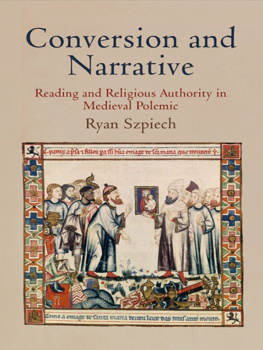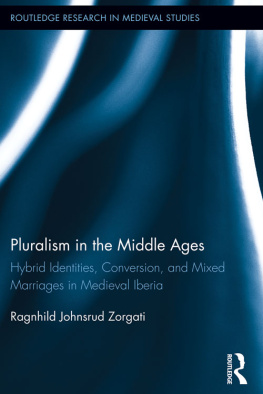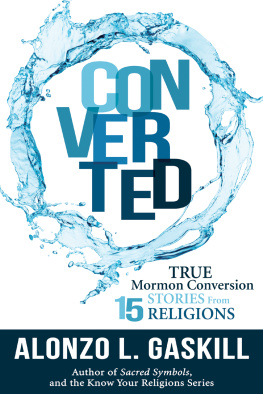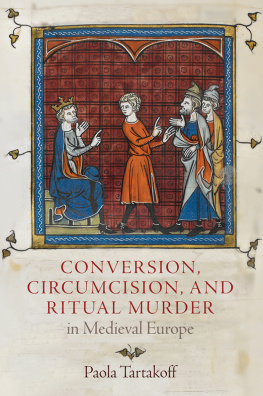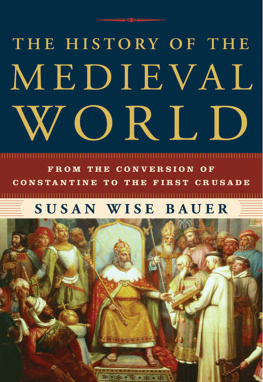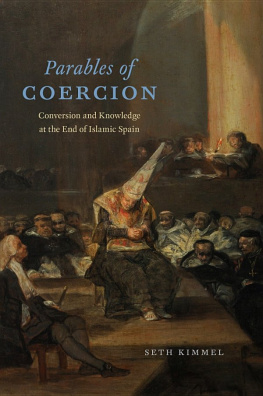ACKNOWLEDGMENTS
My thinking on narrative and its relationship to time grew out of my conversations with Michael Palencia-Roth at the University of Illinois-UC, and I am deeply grateful for the ideas and inspiration he provided. The germ of this specific project began as part of my research at Yale University, and I am glad to thank my colleagues there, including Daniel Lasker for his generosity and many helpful comments and suggestions. I am especially indebted to Mara Rosa Menocal. Her wisdom and encouragement were invaluable to me during my research, and her sound advice helped me in planning the shape of this book. She continues to be for me both a good friend and a professional model.
The research for all but was undertaken as part of the INTELEG project (The Intellectual and Material Legacies of Late-Medieval Sephardic Judaism), directed by Esperanza Alfonso (Consejo Superior de Investigacines Cientificas, CSIC). This project was supported by a four-year Starting Grant from the European Research Council, whose financial support I happily acknowledge. I am especially grateful to Dr. Alfonso and the other members of the project, Javier del Barco (CSIC), Arturo Prats (Universidad Complutense), and Jonathan Decter (Brandeis), for their friendship, encouragement, and ongoing collaboration. This research was also supported by the generosity of the Michigan Institute for the Humanities, where I was a Faculty Fellow in the 200910 academic year. I am grateful to the Hunting family for support of that fellowship, to the Institute directors Daniel
Herwitz and Sidonie Smith, and to all who were part of that marvelous year. In particular, I wish to thank Valerie Kivelson, Kieth Mitnick, Claire Zimmerman, and Daniel Hershenzon for their comments and companionship. I also wish to thank Jerome Singerman at the University of Pennsylvania Press for his encouragement and editorial stewardship in bringing this project to fruition.
Versions of various chapters were presented at Harvard University (2005), the Medieval Academy (2004 and 2005), Duke University (2006), the University of Granada (2007), the CSIC in Madrid (2009), the Tauber Institute for the Study of European Jewry at Brandeis University (2009), the University of Chicago (2010), Princeton University (2011), and the Michigan Institute for the Humanities (2009, 2010, 2011). I benefited very much from the feedback offered in all of these forums. Part of appeared in an article in eHumanista 14 (2010): The Original Is Unfaithful to the Translation: Conversion and Authenticity in Abner of Burgos and Anselm Turmeda. I am grateful to the publishers for permission to republish this material.
I also wish to thank my colleagues at the University of Michigan, especially Catherine Brown, Peggy McCracken, George Hoffman, Alison Cornish, Enrique Garca Santa-Toms, Steve Dworkin, Hussein Fancy, Todd Endelmann, Elliot Ginsberg, Michael Bonner, and Karla Mallette, all of whom have offered invaluable feedback on my work and have made the past five years a pleasure. A number of other people have also read drafts this work and I have received helpful comments from all of them: my wife, Mary Deirdre Casey; my father-in-law, Edward Casey; and Anna Koslowska, Steve Nimis, Jonathan Decter, and Daniel Hershenzon. A big thanks to David Nirenberg and Abigail Krasner Balbale for their help with reading sources from the Archive of the Crown of Aragn, to Sarah Stroumsa for her helpful feedback on Arabic terminology, and to John Dagenais for his kindness, encouragement, and sense of humor. I would also like to acknowledge the contributions of two of the students in my 2010 seminar Narrating Conversion in the Medieval Mediterranean: Yanay Israeli and Helena Skorovsky. Their enthusiasm and sharp critical thinking contributed to my own work in this book, and I am sincerely grateful to them.
I am most deeply beholden to my family and friends for their support and encouragement over the years, especially to my sister, Kimberly, and my grandmother Helen. Many hours were spent working on this book that could have been more happily spent together with my wife, Mary Deirdre, and our two children, Finnegan and Adelaide. This book is as much the work of their patience and daily sacrifice as it is the product of my own solitary labor, and to them I offer my deepest gratitude and love. I have dedicated this book to my parents, Terry and Joyce, in appreciation for their many sacrifices on my behalf and their unflagging support and affection.
BIBLIOGRAPHY
PRIMARY SOURCES
Abd al-aqq al-Islm. Al-Sayf al-mamdd f l-radd al abr al-Yahd. (Espada extendidapara refutar a los sabios judos

